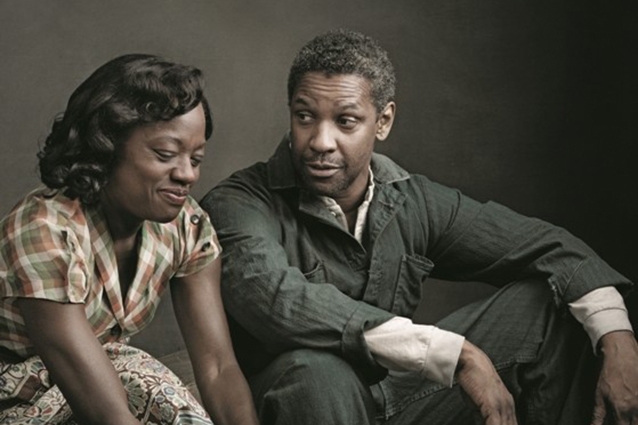 Returning to their roles six years after the Tony Award-winning revival of August Wilson’s “Fences” stunned Broadway; Denzel Washington, Viola Davis, and Stephen Henderson are at long last presenting the sixth play in Wilson “Pittsburg Cycle” to film audiences.
Returning to their roles six years after the Tony Award-winning revival of August Wilson’s “Fences” stunned Broadway; Denzel Washington, Viola Davis, and Stephen Henderson are at long last presenting the sixth play in Wilson “Pittsburg Cycle” to film audiences.
The play, which was written in 1983 and first debuted on Broadway in 1987 is one of Wilson’s most beloved and well-known from his Twentieth Century Pittsburg Cycle. Set in the 1950’s, “Fences” follows 53-year old sanitation worker Troy Maxson and his family, who are struggling to thrive in the racially tense era. Recently, at a screening for the film in New York City that I attended, Academy Award Winner Denzel Washington who is directing and starring in the film, Academy Award Nominee Viola Davis, and Tony Award Nominee Stephen Henderson, sat down for a post-screening Q&A. They discussed their return to “Fences,” adapting it for film, and what August Wilson’s work means for us today.
Denzel, getting “Fences” to the big screen has been a very long process for you. What did you see in the play that made you realize it would make a great film? I understand that August Wilson wrote the screenplay.
Denzel Washington: In 2009, Scott Rudin sent me August’s original screenplay and asked me what I wanted to do with it. He wanted to know if I wanted to act in it, direct it or produce it. I said, “Well, let me read it first.” (Laughing) So, I read it, and I realized I hadn’t read the play, so I read the play. I had seen the play in the ‘80s, so I thought I was too young to be Troy or too old to be Cory. I was thinking about when I saw it in the ‘80s. And then, when I read the play and it said, “Troy, 53-years old” and I was 55 at the time, I said, “Oh, I better hurry up.” So, it was as simple as that. I called Scott Rudin, and I told him I wanted to do the play, so that’s how the ball got rolling. I never said, “I’ll do the play, and the next year I’ll do the film, I just wanted to do the play.”
When you talk about adapting a play into a film, there is a lot of discussion about opening up the world. For all of you, because you were all in the play, let’s talk about recontextualizing some of the scenes because we are able to move away from the yard in the film.
DW: Well, let me just say before they speak, I never thought about opening it up, I don’t even know what that means, I just thought about where else would it make sense for this scene to take place. I thought, “Why can’t Rose walk in the kitchen?” So we used the front yard, the backyard, the kitchen, we used the front room; we used the porch, we used the front street and upstairs and other places, the back of the [garbage truck], the sanitation yard, the insane asylum, the bar, and that worked well.
Stephen Henderson: It all fit, it really did. Pittsburg fit. Spiritually speaking we knew that we were on streets that August had walked and that he had mused on back when he was just writing. Because he wrote, he wrote before anybody was doing it. So to be in touch with that and to have his family there, it was really rich. The community we were in, they so welcomed us.
Viola Davis: They were so protective of the work.
DW: We had a guy, a gentlemen by the name of Mr. Greenleaf who lived behind the house we were shooting in, and he was like a part of the movie. (Laughing) He would come downstairs, and he couldn’t hear well to say, “Ya’ll want some coffee?”
How did you calibrate this world as a director?
DW: We had depth, and we wanted to take advantage of that cinematically. When you look in one direction where Troy’s chair was, you could see out through the yard across the street, there was an old cork bar advertisement for five cents. We wanted it to feel like this was real life and that it extended blocks and blocks.
Viola, can you talk about working with Denzel both as an actor and then having him as a director?
VD: Well, Denzel just knows the actor. He knows the process, and you don’t often get that. Sometimes people come in as a director, and they just want the result, and they barely want that to tell you the truth. Sometimes directors barely talk to the actors; they are so focused on the cinematic elements of the movie, getting the shot and getting the lighting right or getting the CGI effects right and all of that, and they just trust that you are just going to do what you do. Obviously, [“Fences”] is not a piece you can do that with. It is a character-driven piece in every sense of the word, and Denzel knows the actor. He gave us two weeks of rehearsal. He is a truth teller, and he is a truth seer. So he knows when something is not going in the right direction, and he will call you on it. But, he knows the word to use to unlock whatever is blocking you. So I think he’s fabulous and he’s a teacher.
DW: Keep going girl!
VD: (Laughing) When Denzel first called me on the phone after we’d just done a reading of the film. He said, “Oh Viola it was so good, wasn’t it?! I’m gonna tell Russell [Hornsby] to lose a little bit of weight and…” I was just sitting there thinking, why is he calling me? And I told him, “Denzel don’t you tell me to lose weight!” He said, “I’m not telling you to lose weight! I can’t believe you would say that.” He was rustling with something and when he came back it was with a word about loving myself and the body that I’m in because I was still going on and on about the weight thing. I just liked that, because what people don’t understand is that so much of what blocks us as actors is so personal. So it just great. Lloyd Richards is another director who was like that, who was a teacher. When a director can give you a word that allows you to feel less tense about yourself, to make you feel like you indeed are good enough before you even get to the work, you can’t ask for anything more than that.
Since all three of you worked together on the stage play, what was it like bringing in the new cast members for the film?
SH: It was very very easy to open up to them. Both of the new people were so respectful of the work and glad to be there. Nothing was taken for granted, coming into the film.
DW: Just so you know the new people are Jovan [Adepo] who played Cory and the little girl.
SH: Saniyyah [Sidney] and Jovan, they both came, and they were so respectful towards the work. Once of the things Mykelti Williamson, Russell Hornsby and I did is we took Jovan out to Greenwood where August is buried. I’d been there a few times, and we took him out to his headstone, and I remembered this tree, and that’s all I remembered. I saw a tree and it was a wrong tree, but Jovan saw this other tree and ran up, and he got there first. For me, it was really a sign. There was so much about this whole experience that proved that the people who were brought to it, were brought to it by forces. I mean they were brought to it by Denzel, but Denzel is such an instinctive kind of person. He’s an instinctive artist and instinctive in terms of his feelings about people. So, it was very easy and Saniyyah, well forget about it. She’s an old soul; she’s been here before.
Speaking about Saniyyah, what was it like finding her in the casting process because she is such a crucial character?
DW: She just had “it.” I didn’t want to audition the kids so much; I just wanted to talk to them because I like seeing how they are because their mothers usually mess them up with practice. So, I’d rather talk to them and see how they respond. I just throw things at them and see how they can hit the ball back, and she was good. I even asked her why she wanted to be an actor and she said, “I’m serious about this. These other little kids they want to play, and I don’t have time for that.” She was very serious about her work and her craft, and she wanted to be good, and she wanted to work on it. So I said, “Ok.” It was as simple as that. She was just right. She just has it.
Continue reading at Shadow and Act.
Image: Fences/Paramount
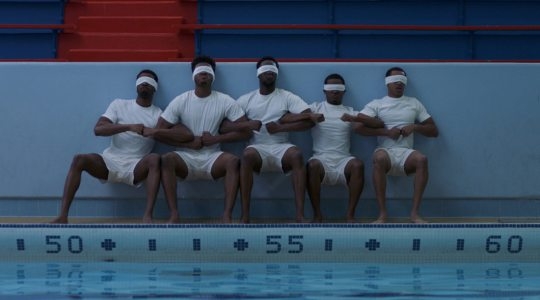 If you exist outside of the Greek world, and certainly if you attended a predominantly white university as a student of color, Greek life swirls around you.
If you exist outside of the Greek world, and certainly if you attended a predominantly white university as a student of color, Greek life swirls around you.
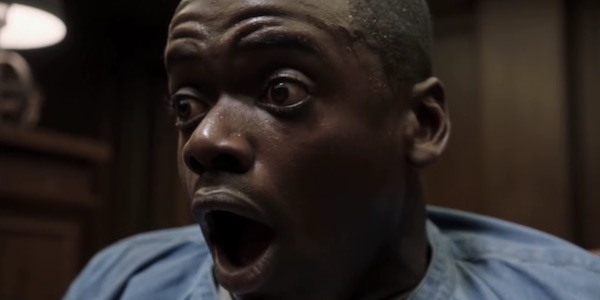 In a debate on the subject of being Black in America, James Baldwin once said, “To be a Negro in this country is really… never to be looked at. What white people see when they look at you is not visible. What they do see when they do look at you is what they have invested you with.” There is a choice among some white people, to stand in their apathy and ignorance, clinging on to stereotypes about other groups and races in order to continue to make themselves feel superior. What comes forth in the wake of this, are ideals that are entrenched in both bigotry and white privilege, which are so horrifying that they are often borderline amusing.
In a debate on the subject of being Black in America, James Baldwin once said, “To be a Negro in this country is really… never to be looked at. What white people see when they look at you is not visible. What they do see when they do look at you is what they have invested you with.” There is a choice among some white people, to stand in their apathy and ignorance, clinging on to stereotypes about other groups and races in order to continue to make themselves feel superior. What comes forth in the wake of this, are ideals that are entrenched in both bigotry and white privilege, which are so horrifying that they are often borderline amusing.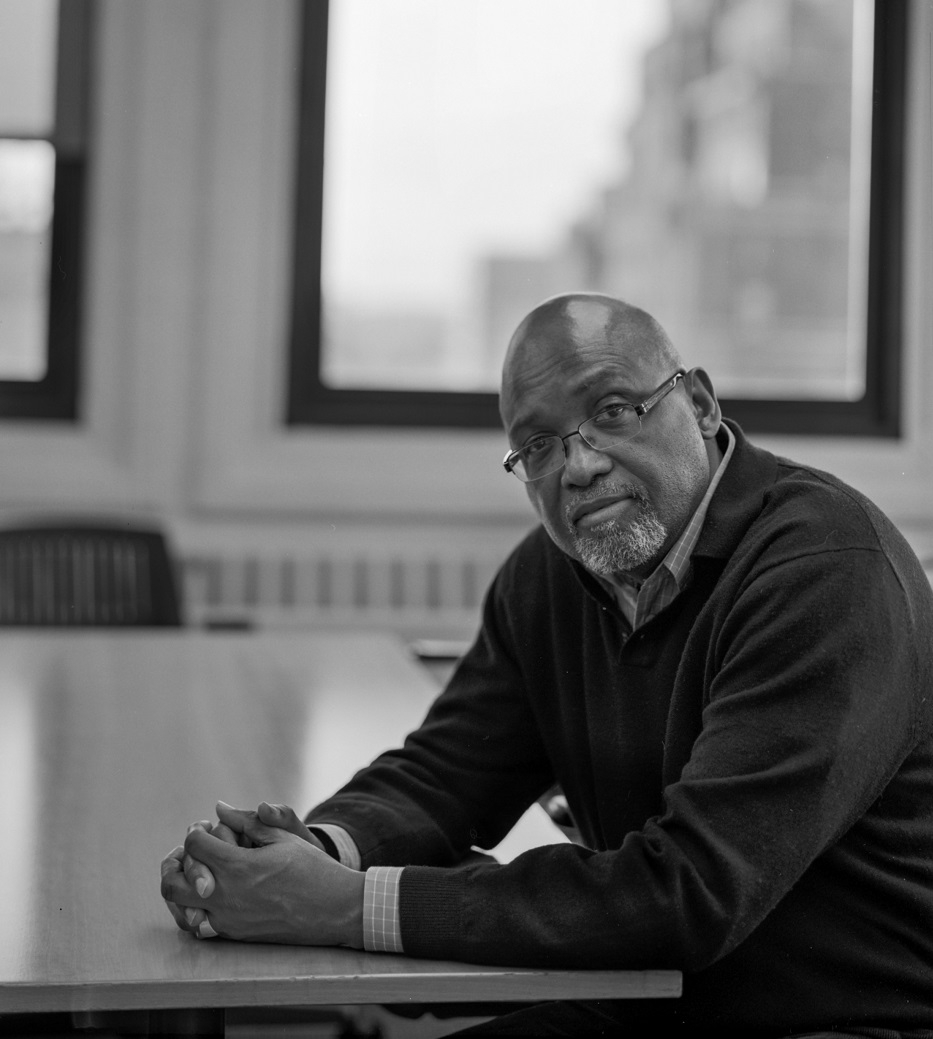 Since our journey began in this country, parents of Black and brown children have had very frank and often chilling conversations with their offspring about encounters and interactions with law enforcement. While many police officers honor their code; others wield their power by brutalizing, terrorizing, murdering and wreaking havoc throughout communities of color.
Since our journey began in this country, parents of Black and brown children have had very frank and often chilling conversations with their offspring about encounters and interactions with law enforcement. While many police officers honor their code; others wield their power by brutalizing, terrorizing, murdering and wreaking havoc throughout communities of color.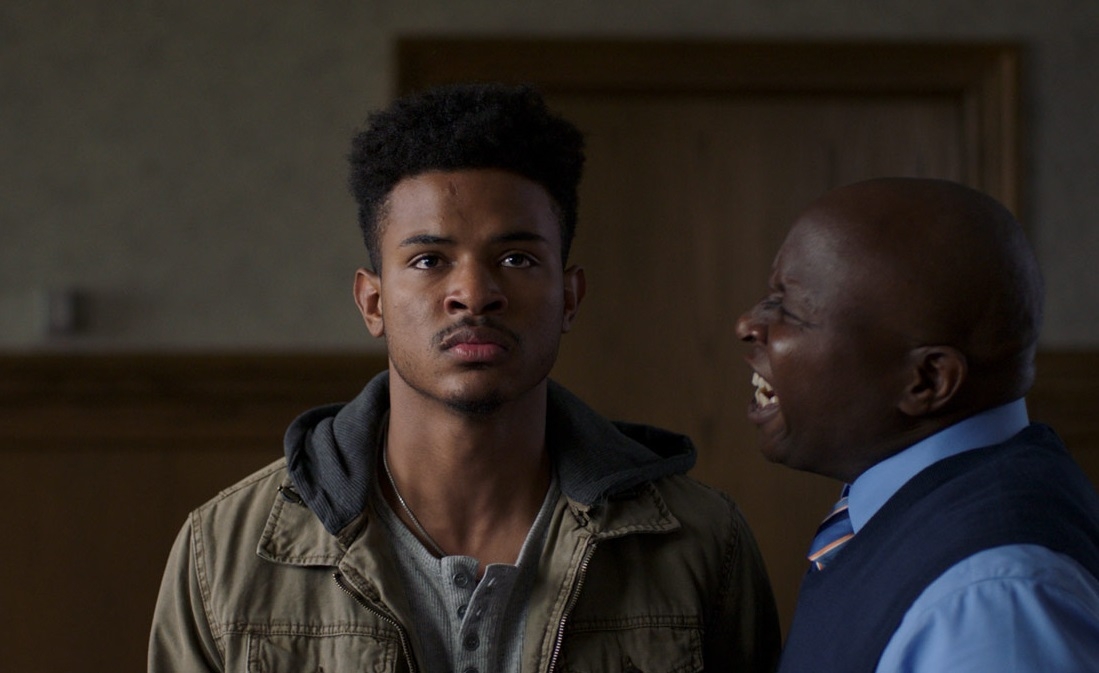 Fraternities and sororities at historically Black colleges and universes have had a significant impact not just on the students who are a part of them but on the Black community as a whole. In films like “Drumline” and “Stomp the Yard,” which are set on HBCU campuses, we often get a small glimpse into the sacred world of pledging, the focus of these film shining a light on other aspects of college life. Perhaps not since Spike Lee’s 1988 film “School Daze” has there been such a major focus on pledging Black frats and sororities and the hazing that often comes along with that.
Fraternities and sororities at historically Black colleges and universes have had a significant impact not just on the students who are a part of them but on the Black community as a whole. In films like “Drumline” and “Stomp the Yard,” which are set on HBCU campuses, we often get a small glimpse into the sacred world of pledging, the focus of these film shining a light on other aspects of college life. Perhaps not since Spike Lee’s 1988 film “School Daze” has there been such a major focus on pledging Black frats and sororities and the hazing that often comes along with that.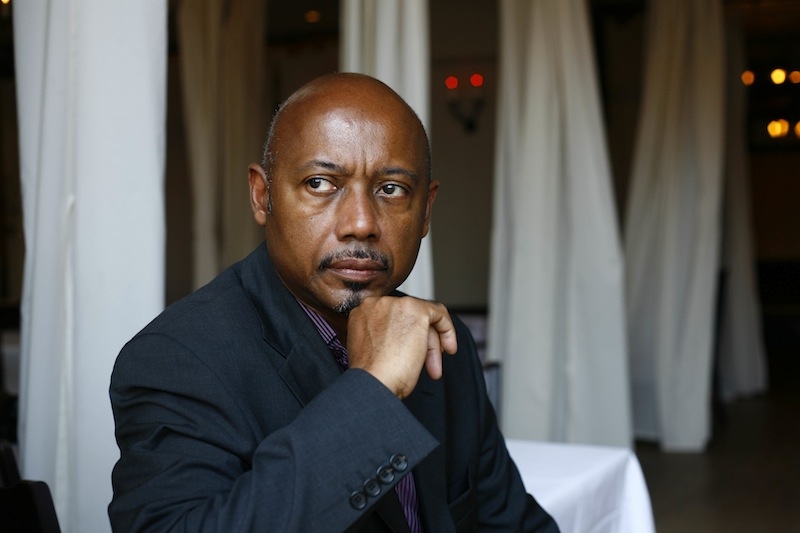 In his spellbinding and heartbreaking Academy Award nominated film, “I Am Not Your Negro,” Haitian filmmaker Raoul Peck examines the story that James Baldwin never finished writing. “Remember This House” was to be a sweeping narrative exploring the lives, journeys, and deaths of three pivotal men in our history; Medgar Evers, Malcolm X, and Martin Luther King Jr. An intricate and fascinating narrative, “I Am Not Your Negro,” gives us a view of both Baldwin and Peck’s journeys as Black men in America, encountering racism and violence.
In his spellbinding and heartbreaking Academy Award nominated film, “I Am Not Your Negro,” Haitian filmmaker Raoul Peck examines the story that James Baldwin never finished writing. “Remember This House” was to be a sweeping narrative exploring the lives, journeys, and deaths of three pivotal men in our history; Medgar Evers, Malcolm X, and Martin Luther King Jr. An intricate and fascinating narrative, “I Am Not Your Negro,” gives us a view of both Baldwin and Peck’s journeys as Black men in America, encountering racism and violence.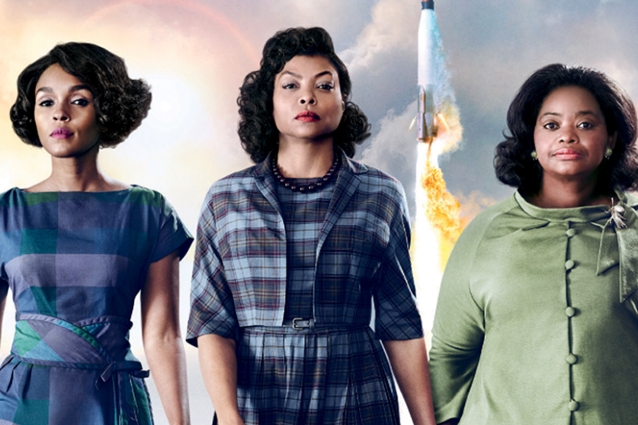 It is no secret that American history is often white-washed and male -centered, erasing the dedicated work of women and people of color; especially Black women who have worked tirelessly throughout time to make this country what it is today. The story of Katherine Johnson, Dorothy Vaughan and Mary Jackson, Black female scientists and mathematicians who played an integral role in getting the United States into the race for human space flight is just one of those stories. Based on the compelling book by Margot Lee Shetterly, “Hidden Figures” tells the story of this visionary trio of women who crossed every barrier in order to make space travel possible.
It is no secret that American history is often white-washed and male -centered, erasing the dedicated work of women and people of color; especially Black women who have worked tirelessly throughout time to make this country what it is today. The story of Katherine Johnson, Dorothy Vaughan and Mary Jackson, Black female scientists and mathematicians who played an integral role in getting the United States into the race for human space flight is just one of those stories. Based on the compelling book by Margot Lee Shetterly, “Hidden Figures” tells the story of this visionary trio of women who crossed every barrier in order to make space travel possible. Returning to their roles six years after the Tony Award-winning revival of August Wilson’s “Fences” stunned Broadway; Denzel Washington, Viola Davis, and Stephen Henderson are at long last presenting the sixth play in Wilson “Pittsburg Cycle” to film audiences.
Returning to their roles six years after the Tony Award-winning revival of August Wilson’s “Fences” stunned Broadway; Denzel Washington, Viola Davis, and Stephen Henderson are at long last presenting the sixth play in Wilson “Pittsburg Cycle” to film audiences.
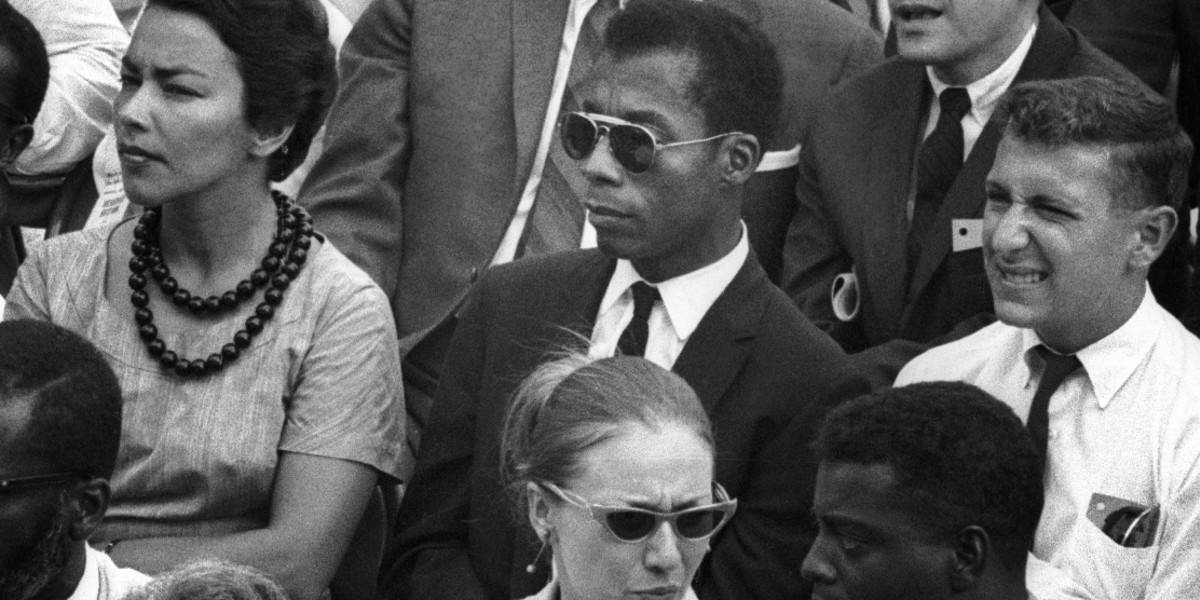 We exist in a world of cycles. Perhaps nowhere else in society are these cycles as prevalent as they are in the entertainment industry. When I grew up in the ‘90s, there were a plethora of black faces on the big and small screens. From Will Smith’s “Fresh Prince” to “Living Single” (aka the original “Sex and the City”), I could turn to any network television station to see myself, or the people closest to me, represented in some way on screen.
We exist in a world of cycles. Perhaps nowhere else in society are these cycles as prevalent as they are in the entertainment industry. When I grew up in the ‘90s, there were a plethora of black faces on the big and small screens. From Will Smith’s “Fresh Prince” to “Living Single” (aka the original “Sex and the City”), I could turn to any network television station to see myself, or the people closest to me, represented in some way on screen.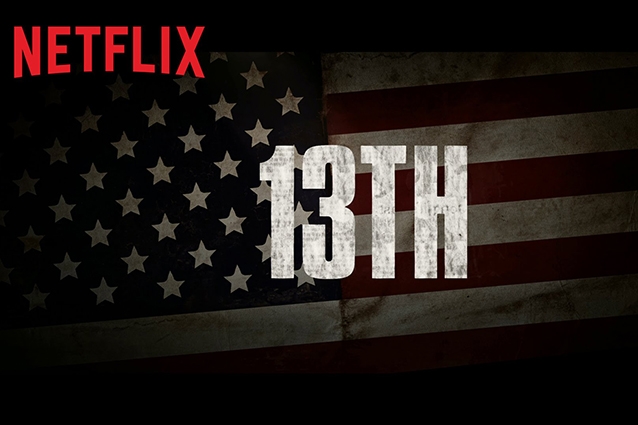 Growing up, prison seemed like an abstract concept to me, one reserved for “Law & Order” episodes and select family members who would be absent every other Christmas or Thanksgiving holiday. It wasn’t until I arrived in college in a class on Black Urban Studies, that I was educated about the mass incarceration that occurs in this country. I watched the 1998 documentary “The Farm: Angola, USA,” and read Michelle Alexander’s “The New Jim Crow: Mass Incarceration in the Age of Colorblindness.” It was through these two mediums that the system of dehumanization and oppression was revealed to me. I distinctly remember feeling horrified that the prisoners of Angola were required to pick cotton as a part of their daily tasks. Slavery was, after all, long ago abolished. However, I soon learned and continued to learn that nothing ever really goes away; it’s merely reinvented into a more easily digestible package ripe for public consumption.
Growing up, prison seemed like an abstract concept to me, one reserved for “Law & Order” episodes and select family members who would be absent every other Christmas or Thanksgiving holiday. It wasn’t until I arrived in college in a class on Black Urban Studies, that I was educated about the mass incarceration that occurs in this country. I watched the 1998 documentary “The Farm: Angola, USA,” and read Michelle Alexander’s “The New Jim Crow: Mass Incarceration in the Age of Colorblindness.” It was through these two mediums that the system of dehumanization and oppression was revealed to me. I distinctly remember feeling horrified that the prisoners of Angola were required to pick cotton as a part of their daily tasks. Slavery was, after all, long ago abolished. However, I soon learned and continued to learn that nothing ever really goes away; it’s merely reinvented into a more easily digestible package ripe for public consumption.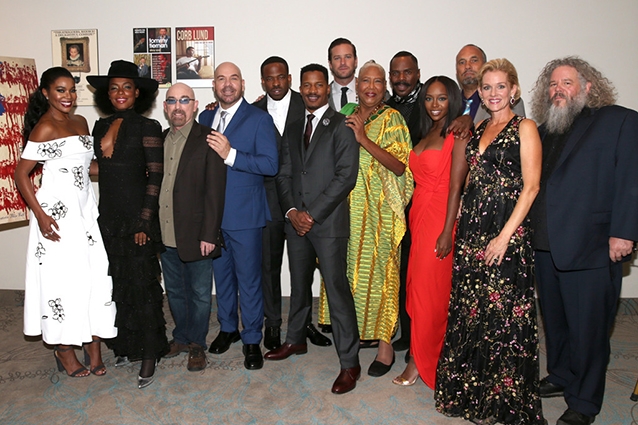 When I was asked to attend the screening and press junket for Nate Parker’s “The Birth Of A Nation” at the Toronto International Film Festival, I was hesitant. A film which I had been so looking forward to seeing for the better part of a year, suddenly made my stomach turn. The thought of putting my ideas and opinions on the project and filmmaker out for the world to see was daunting. The details surrounding filmmaker and actor Nate Parker’s rape trial in 1999, as well as his callous remarks in the past months regarding that time, were and are unsettling.
When I was asked to attend the screening and press junket for Nate Parker’s “The Birth Of A Nation” at the Toronto International Film Festival, I was hesitant. A film which I had been so looking forward to seeing for the better part of a year, suddenly made my stomach turn. The thought of putting my ideas and opinions on the project and filmmaker out for the world to see was daunting. The details surrounding filmmaker and actor Nate Parker’s rape trial in 1999, as well as his callous remarks in the past months regarding that time, were and are unsettling.
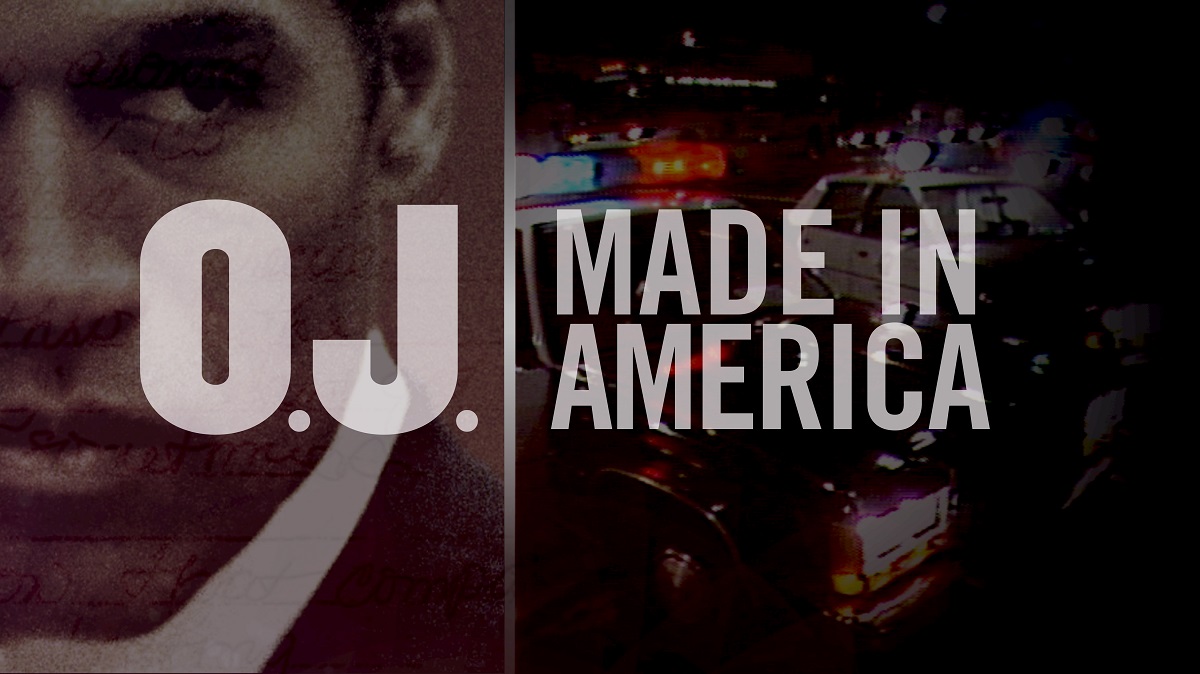 The year Orenthal James Simpson was acquitted of murdering his ex-wife Nicole Brown Simpson, and her friend Ron Goldman, I was entering Kindergarten. I vaguely remember the hoopla surrounding the trial, sitting on my father’s knee while he discussed it with his friends, or hovering around my mother and my aunts; my ears listening intently to “grown folks business”. The things that I heard at that time, I didn’t really grasp. As I grew older, especially as Simpson’s behavior became more publicly erratic leading up to his 2007 arrest and conviction, I formed my own opinions about the fallen man who in my eyes, was so obviously guilty of the heinous crimes. And yet for one moment in our country’s history, Simpson’s privilege without regard to his skin color let him slip through the system.
The year Orenthal James Simpson was acquitted of murdering his ex-wife Nicole Brown Simpson, and her friend Ron Goldman, I was entering Kindergarten. I vaguely remember the hoopla surrounding the trial, sitting on my father’s knee while he discussed it with his friends, or hovering around my mother and my aunts; my ears listening intently to “grown folks business”. The things that I heard at that time, I didn’t really grasp. As I grew older, especially as Simpson’s behavior became more publicly erratic leading up to his 2007 arrest and conviction, I formed my own opinions about the fallen man who in my eyes, was so obviously guilty of the heinous crimes. And yet for one moment in our country’s history, Simpson’s privilege without regard to his skin color let him slip through the system.
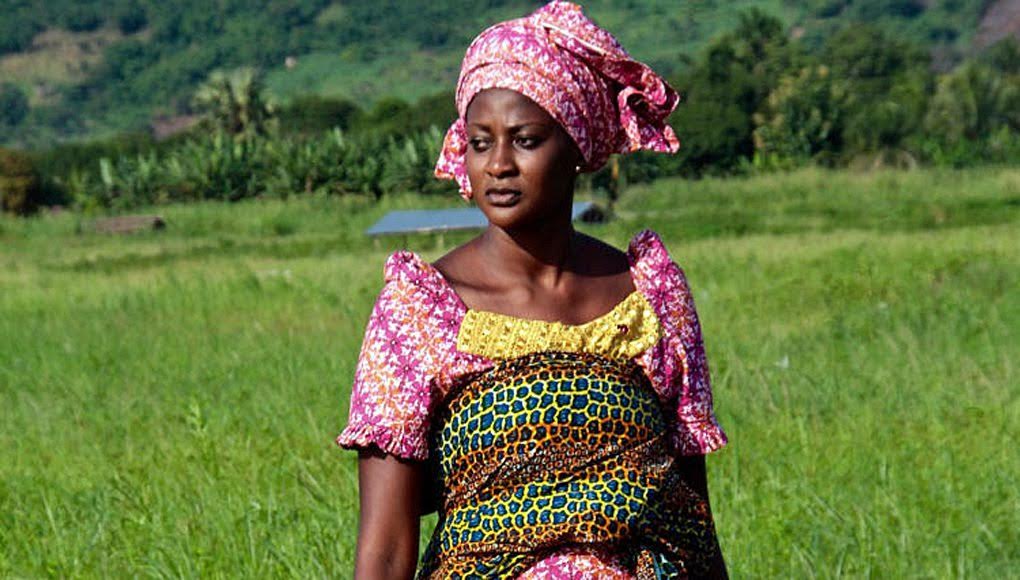 As a Black woman, who is currently child free, motherhood seems like a foreign concept to me. The thought of putting someone else’s needs and desires above my own is an alarming idea, one I’m uncertain I’ll ever be prepared for. What I do know about motherhood is what I’ve learned from my own mother. You simply have to give; openly, freely, and without question.
As a Black woman, who is currently child free, motherhood seems like a foreign concept to me. The thought of putting someone else’s needs and desires above my own is an alarming idea, one I’m uncertain I’ll ever be prepared for. What I do know about motherhood is what I’ve learned from my own mother. You simply have to give; openly, freely, and without question.
